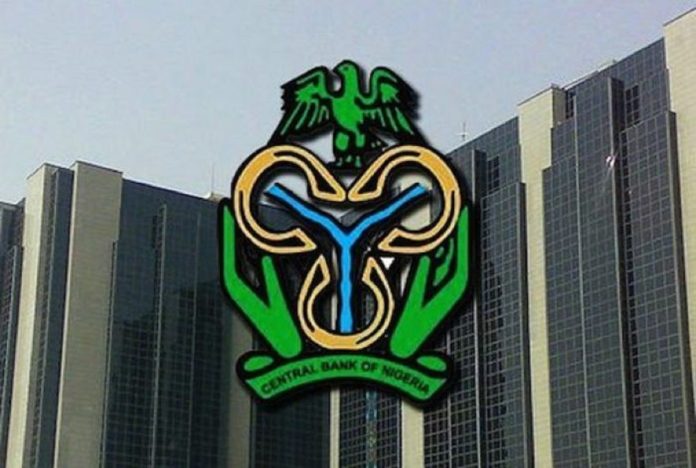The Nigerian local currency, the naira, depreciated by about 6% at the Investors and Exporters foreign exchange (FX) window in September 2022 following as the market recorded higher demand for foreign currencies for imports.
Historical trading data from the FMDQ shows that from N415, the exchange rate at the investors and exporters window has weakened near N437.50 amidst lower export receipts and unimpressive remittance from offshore.
At the same time, pre-election demand for dollars drove spot rates higher in the unrecognised currencies market. Data from the FMDQ Exchange platform showed that the Naira was exchanged at the investors’ window at N437.03 per the United States dollar while the local currency depreciated further in the black market.
Based on consensus, analysts still believe that the naira is overvalued while multiple quotes continue to create speculative opportunities – thus keeping foreign investors away from the Nigerian market.
In a bid to push for exchange rate stability, multilateral lender, International Monetary Fund, IMF, continues to advise the apex bank on the need to converge its multi-tiered exchange rates.
The Central Bank of Nigeria still hopes to continue to support the naira across the foreign exchange market, though the nation’s external reserves remain sufficient for the currency fight. However, the external reserve has been declining over the past four weeks as global prices of oil receded.
Fear of a global recession amid monetary policy tightening has dragged the average price of Brent crude oil lower by 7.5% month on month to $90 per barrel, Afrinvest said in a market report.
Trading below $90, the Brent crude price printed lower at $85.14 per barrel last week, while the West Texas Instrument settled at $79.70 per barrel amidst the expectation that the oil cartel will cut production volume after a persistent decline in global prices.
Market data shows that the price was the lowest since the war in Ukraine began. In September, Nigeria’s foreign reserves declined 1.8% to close at $38.3 billion Despite its FX market intervention and dollar inflow enhance approach, the Naira has not fared well, depreciating across the market segments.
At the parallel market, rates opened at ₦703.00 and closed at ₦745.00, depreciating 1.8%. Similarly, at the Investors’ & Exporters’ FX Window, the Naira weakened 6.0% to ₦437.03, according to market data.
At the FMDQ Securities Exchange FX Futures Contract Market, the total value of open contracts rose 6.4% month on month to $4.1 billion, Afrinvest hints, added that it was buoyed by the 2,443.5% and 288.8% month-on-month jump in the contract values of Nigeria’s Sept. and NOV. 2023 instruments with additional subscriptions of $229.9 million and $136.4 million respectively.
In its projection, Afrinvest analysts anticipate extended pressure on the Naira across market segments as weak foreign investment flows and reduced accretion from crude oil sales, due to untamed large-scale oil theft, continue to weigh on CBN’s supply capacity.
As of Friday, the external reserve continues to decline – down again by 0.49% from the closing position of $38.51 billion to $38.32 billion on Wednesday 28th September 2022.
Crude oil prices were up for their first weekly rise since August, supported by the possibility that OPEC will agree to cut crude output when it meets next week. The oil group and its allies are considering lowering their output target at their next meeting on Wednesday.
Accretion into Nigeria’s external reserves depends majorly on the global market prices of oil and volume production. Though OPEC allocated 1.8 million barrels of oil per day for Nigeria, there has been significant undersupply due to oil theft in the country.
OPEC+ to Make Significant Output Cut
Though the Organization of the Petroleum Exporting Countries and allied producers are willing to reduce output, the reduction needs to be at least 500,000 barrels per day to lend support to prices, according to Commerz Bank said on Friday.
Russia stands to benefit from a production cut because it will need to find new buyers for its oil when the EU embargo becomes effective in early December, and will therefore have to make further price reductions to do so, the bank noted.
As a result, higher prices before the embargo would be beneficial. However, the technical committee that prepares the decisions recently said a balanced market was on the cards, Commerzbank said.
OPEC+ production is also already below the agreed quota in any case. Any cut will probably only be implemented to a limited extent, the bank said. The anticipated normalization of production in Kazakhstan, after falling nearly 500,000 b/d short of the agreed volume in August, would more than offset a small cut, Commerz Bank noted.
Russia also does not need to lower its output further as its daily production was already 1.2 million b/d below the target in August. Nigeria and Angola’s combined production in August was also 1.2 million b/d below target. # Nigerian Naira Lost 6% in 30-Day at Investors Window.
Culled from dmarketforces

Call:
Sandra - 07069148333
Pauline - 08174374150
Scholastica - 09060678434













